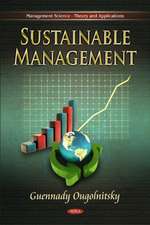Business Cycle Models with Indeterminacy: Contributions to Economics
Autor Mark Wederen Limba Engleză Paperback – 19 ian 1998
Din seria Contributions to Economics
- 18%
 Preț: 1001.81 lei
Preț: 1001.81 lei -
 Preț: 90.83 lei
Preț: 90.83 lei - 15%
 Preț: 649.06 lei
Preț: 649.06 lei - 18%
 Preț: 1109.92 lei
Preț: 1109.92 lei - 24%
 Preț: 657.09 lei
Preț: 657.09 lei - 18%
 Preț: 976.54 lei
Preț: 976.54 lei - 17%
 Preț: 361.03 lei
Preț: 361.03 lei - 18%
 Preț: 1027.83 lei
Preț: 1027.83 lei -
 Preț: 283.93 lei
Preț: 283.93 lei - 15%
 Preț: 644.95 lei
Preț: 644.95 lei - 15%
 Preț: 638.24 lei
Preț: 638.24 lei -
 Preț: 394.29 lei
Preț: 394.29 lei - 15%
 Preț: 636.80 lei
Preț: 636.80 lei - 15%
 Preț: 637.78 lei
Preț: 637.78 lei - 18%
 Preț: 723.69 lei
Preț: 723.69 lei - 15%
 Preț: 635.47 lei
Preț: 635.47 lei - 15%
 Preț: 634.00 lei
Preț: 634.00 lei -
 Preț: 392.75 lei
Preț: 392.75 lei -
 Preț: 383.33 lei
Preț: 383.33 lei - 15%
 Preț: 637.28 lei
Preț: 637.28 lei - 15%
 Preț: 636.80 lei
Preț: 636.80 lei - 18%
 Preț: 950.96 lei
Preț: 950.96 lei - 15%
 Preț: 634.68 lei
Preț: 634.68 lei -
 Preț: 387.38 lei
Preț: 387.38 lei - 15%
 Preț: 647.27 lei
Preț: 647.27 lei - 15%
 Preț: 636.63 lei
Preț: 636.63 lei - 15%
 Preț: 639.73 lei
Preț: 639.73 lei -
 Preț: 385.62 lei
Preț: 385.62 lei - 15%
 Preț: 641.85 lei
Preț: 641.85 lei - 20%
 Preț: 649.60 lei
Preț: 649.60 lei - 15%
 Preț: 641.71 lei
Preț: 641.71 lei -
 Preț: 387.96 lei
Preț: 387.96 lei - 15%
 Preț: 645.47 lei
Preț: 645.47 lei -
 Preț: 385.08 lei
Preț: 385.08 lei - 15%
 Preț: 646.62 lei
Preț: 646.62 lei -
 Preț: 383.33 lei
Preț: 383.33 lei - 15%
 Preț: 638.43 lei
Preț: 638.43 lei -
 Preț: 381.21 lei
Preț: 381.21 lei - 15%
 Preț: 642.51 lei
Preț: 642.51 lei - 15%
 Preț: 637.78 lei
Preț: 637.78 lei - 15%
 Preț: 641.71 lei
Preț: 641.71 lei -
 Preț: 384.70 lei
Preț: 384.70 lei -
 Preț: 379.86 lei
Preț: 379.86 lei -
 Preț: 378.34 lei
Preț: 378.34 lei -
 Preț: 384.70 lei
Preț: 384.70 lei -
 Preț: 388.52 lei
Preț: 388.52 lei - 15%
 Preț: 641.71 lei
Preț: 641.71 lei -
 Preț: 381.00 lei
Preț: 381.00 lei - 15%
 Preț: 644.95 lei
Preț: 644.95 lei -
 Preț: 386.00 lei
Preț: 386.00 lei
Preț: 381.59 lei
Nou
Puncte Express: 572
Preț estimativ în valută:
73.03€ • 79.30$ • 61.34£
73.03€ • 79.30$ • 61.34£
Carte tipărită la comandă
Livrare economică 23 aprilie-07 mai
Preluare comenzi: 021 569.72.76
Specificații
ISBN-13: 9783790810783
ISBN-10: 3790810789
Pagini: 192
Ilustrații: X, 179 p.
Dimensiuni: 152 x 229 x 10 mm
Greutate: 0.26 kg
Ediția:Softcover reprint of the original 1st ed. 1998
Editura: Physica-Verlag HD
Colecția Physica
Seria Contributions to Economics
Locul publicării:Heidelberg, Germany
ISBN-10: 3790810789
Pagini: 192
Ilustrații: X, 179 p.
Dimensiuni: 152 x 229 x 10 mm
Greutate: 0.26 kg
Ediția:Softcover reprint of the original 1st ed. 1998
Editura: Physica-Verlag HD
Colecția Physica
Seria Contributions to Economics
Locul publicării:Heidelberg, Germany
Public țintă
ResearchCuprins
1 Introduction.- 1.1 Introduction.- 1.2 New methods of business cycle theory.- 1.3 Business cycle models with indeterminacy.- 1.4 Related work.- 1.6 Appendix.- 2 Indeterminacy, Business Cycles and Modest Increasing Returns to Scale.- 2.1 Introduction.- 2.2 The model.- 2.3 The equilibrium dynamics.- 2.4 Calibration.- 2.5 Results.- 2.5.1 Eigenvalues.- 2.6 Interpretation.- 2.7 Second moments.- 2.8 Conclusion.- 2.9 Appendix.- 3 Self-Fulfilling Prophecies and Business Cycles in a Two-Sector Stochastic Optimal Growth Model.- 3.1 Introduction.- 3.2 The model.- 3.3 The equilibrium dynamics.- 3.4 Calibration.- 3.5 Results.- 3.6 Conclusion.- 3.7 Appendix.- 4 Animal Spirits, Technology Shocks and the Business Cycle.- 4.1 Introduction.- 4.2 The model.- 4.3 The equilibrium dynamics.- 4.4 Calibration.- 4.5 Results.- 4.6 Business cycle properties.- 4.7 Conclusion.- 4.8 Appendix.- 5 Conclusion.- 6 Bibliography.
Textul de pe ultima copertă
Three original models which explain business cycles as a result of self-fulfilling expectations are presented. The models are founded on the structue of dynamic general equilibrium theory. Market power and increasing returns to scale are introduced which allow indeterminancy of the Rational Expectations equilibria to be obtained. Unlike the majority of existing literature on this subject, the departures from perfect markets and constant returns presented in these models are very low and, more importantly, at a realistic level to achieve the respective results.
The model is structured in the tradition of the Real Business Cycle approach to fluctuations. The time series of the stochastic version of the model act as a factor to measure success. However, shocks generally derive from demand disturbances (animal spirits) alone to produce these results. It is demonstrated in all of the presented models that stylized facts of the business cycle can be reproduced.
The model is structured in the tradition of the Real Business Cycle approach to fluctuations. The time series of the stochastic version of the model act as a factor to measure success. However, shocks generally derive from demand disturbances (animal spirits) alone to produce these results. It is demonstrated in all of the presented models that stylized facts of the business cycle can be reproduced.













